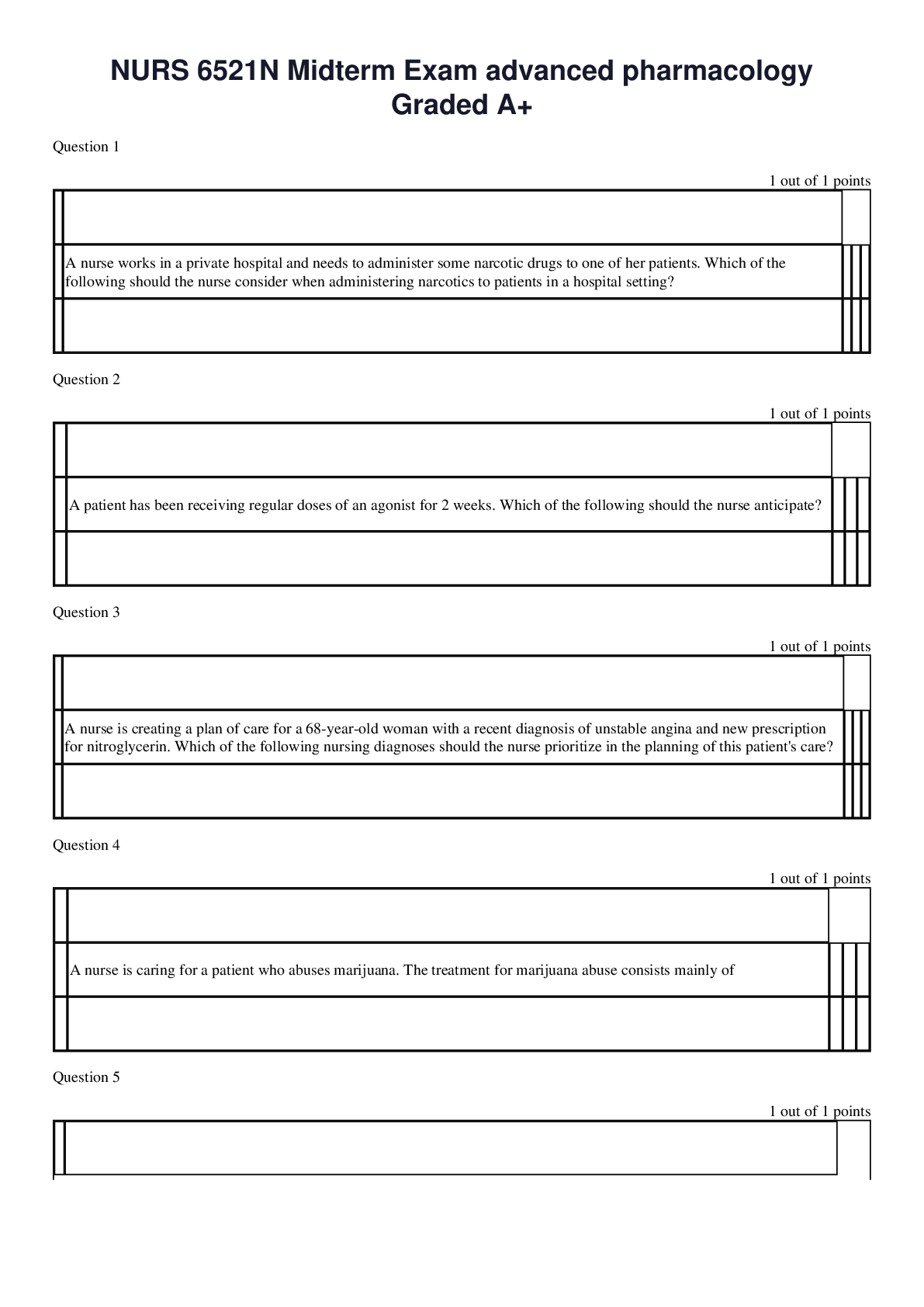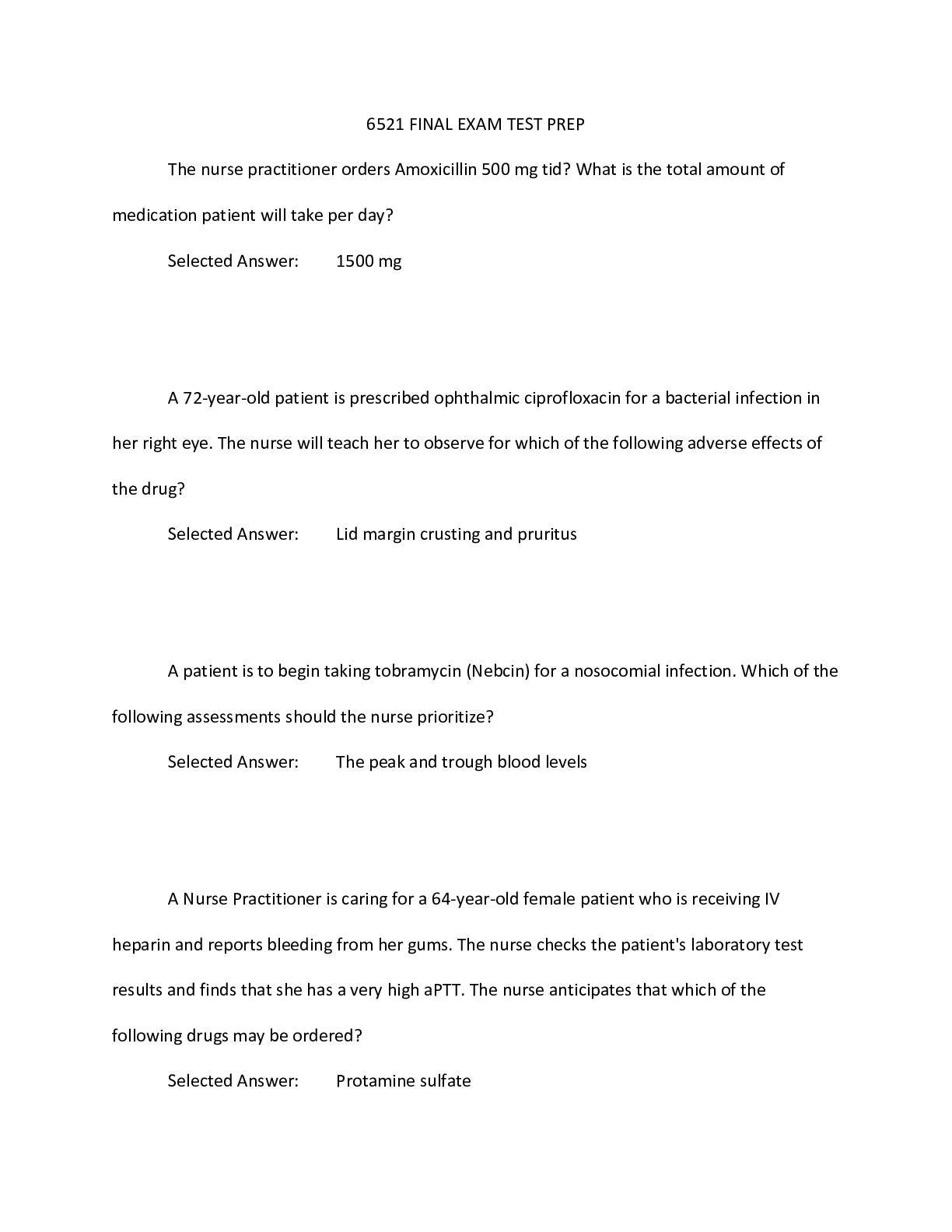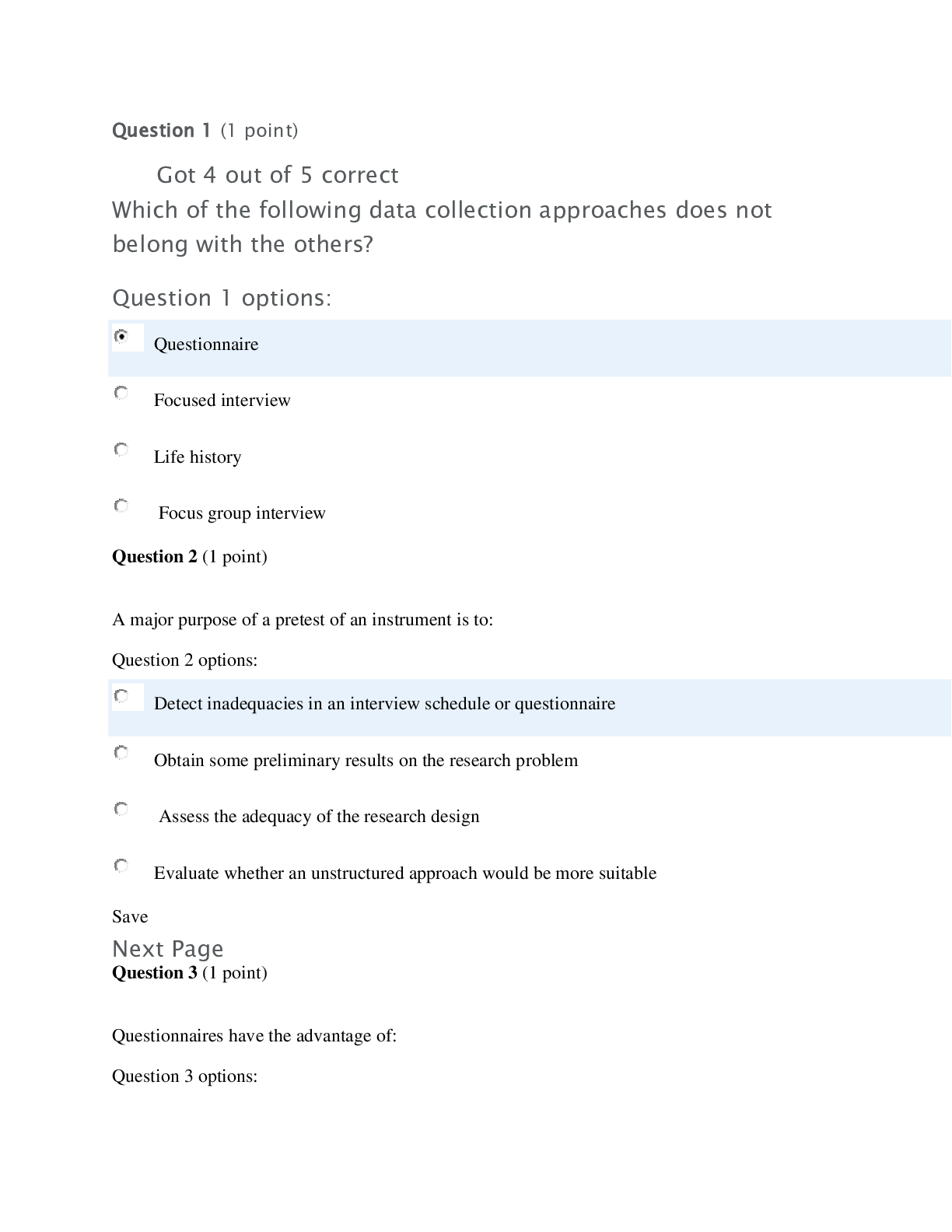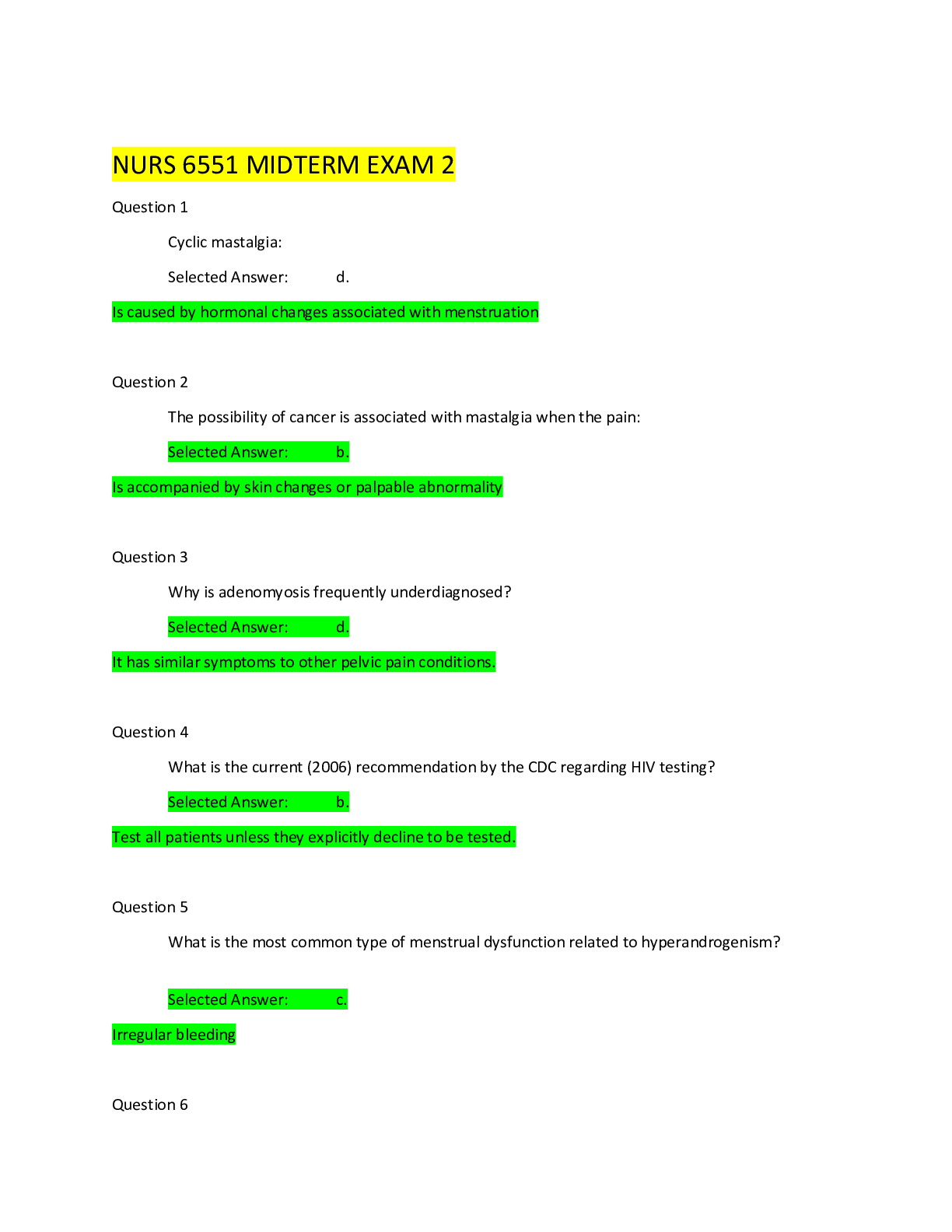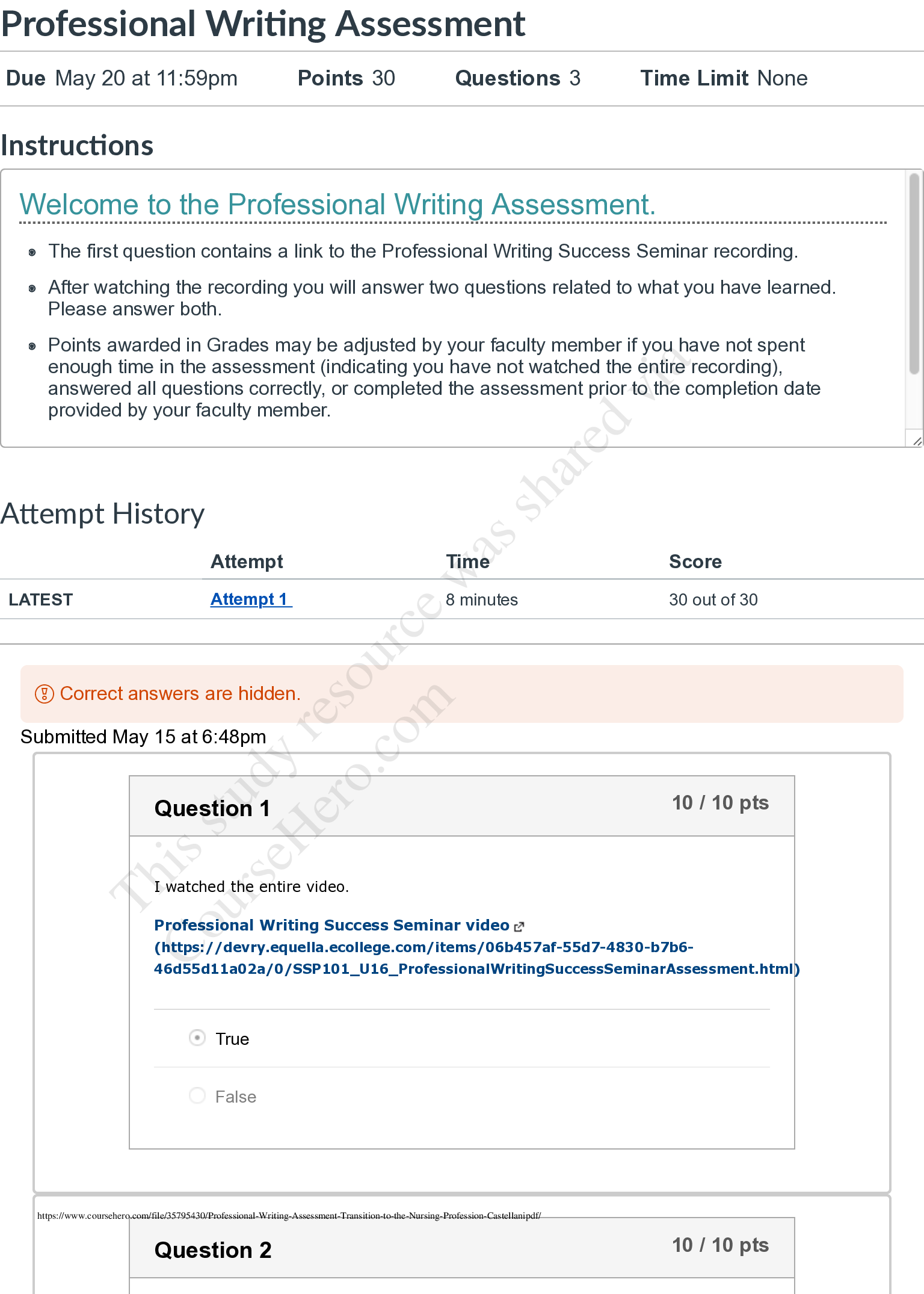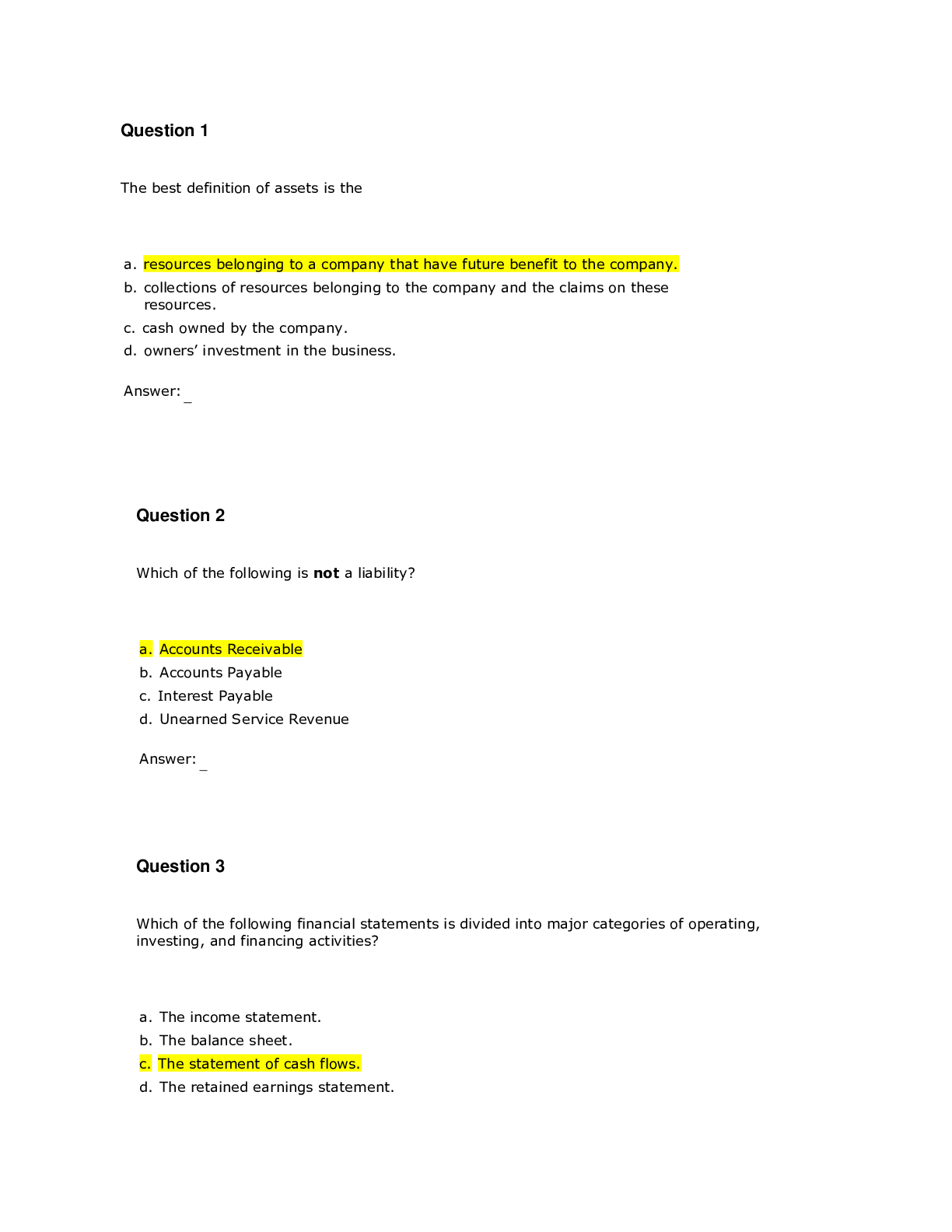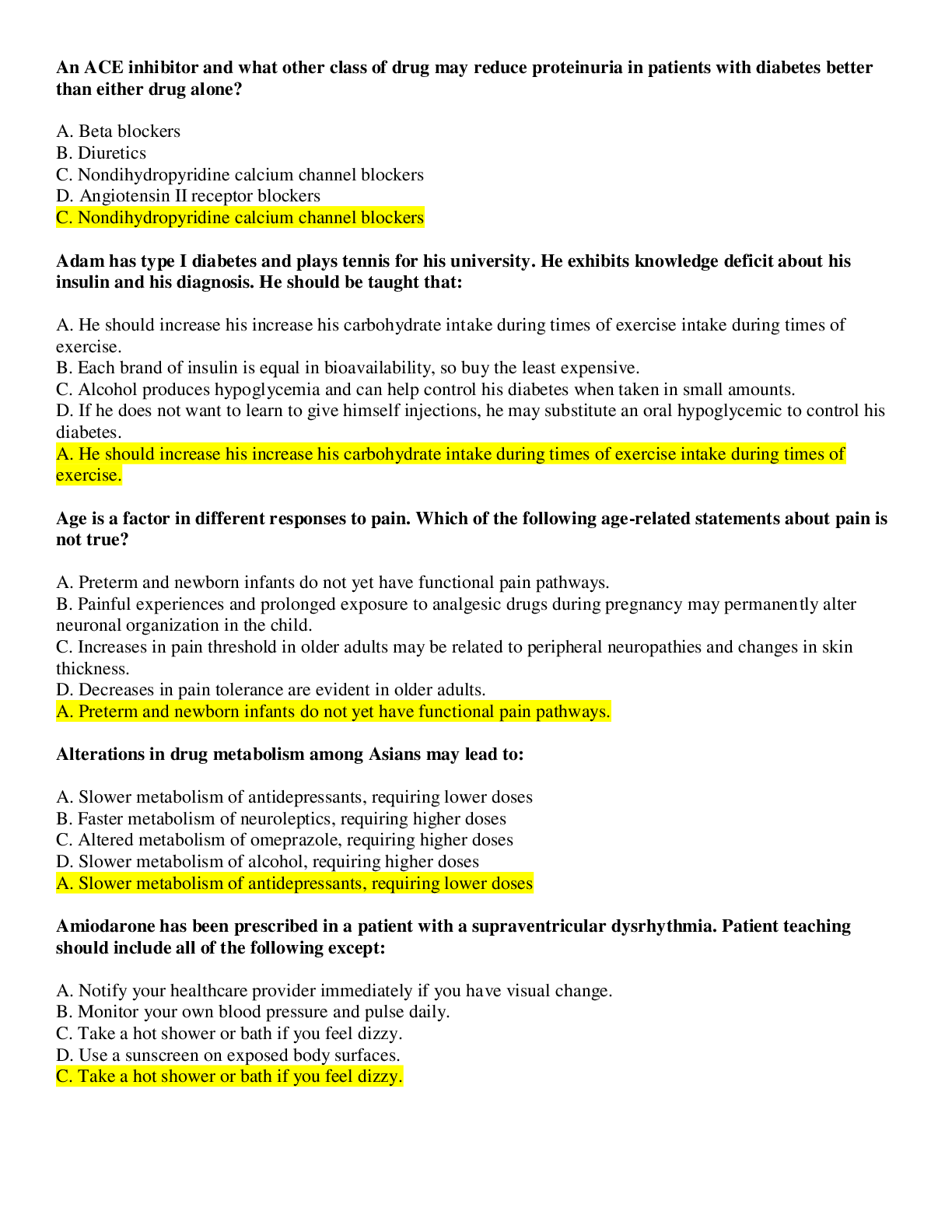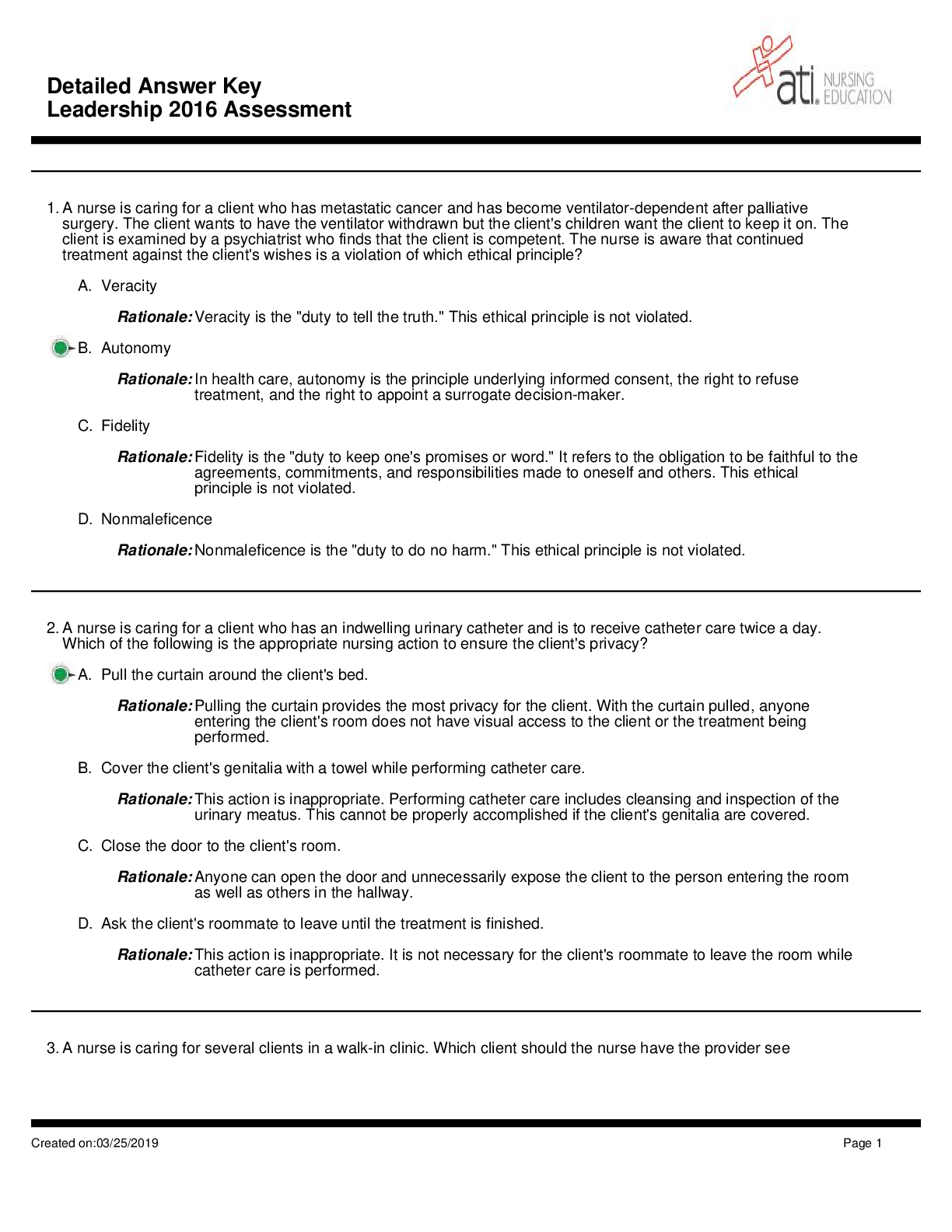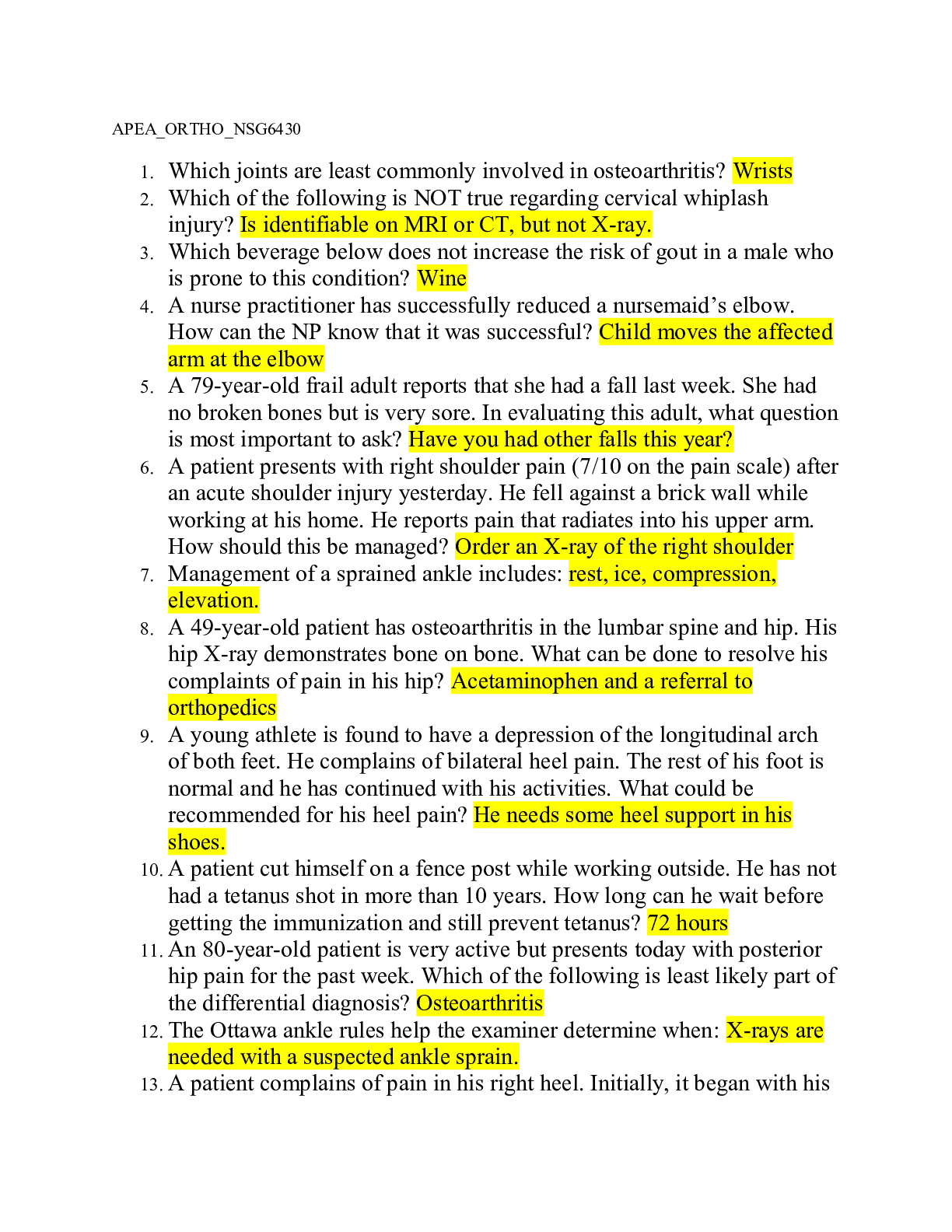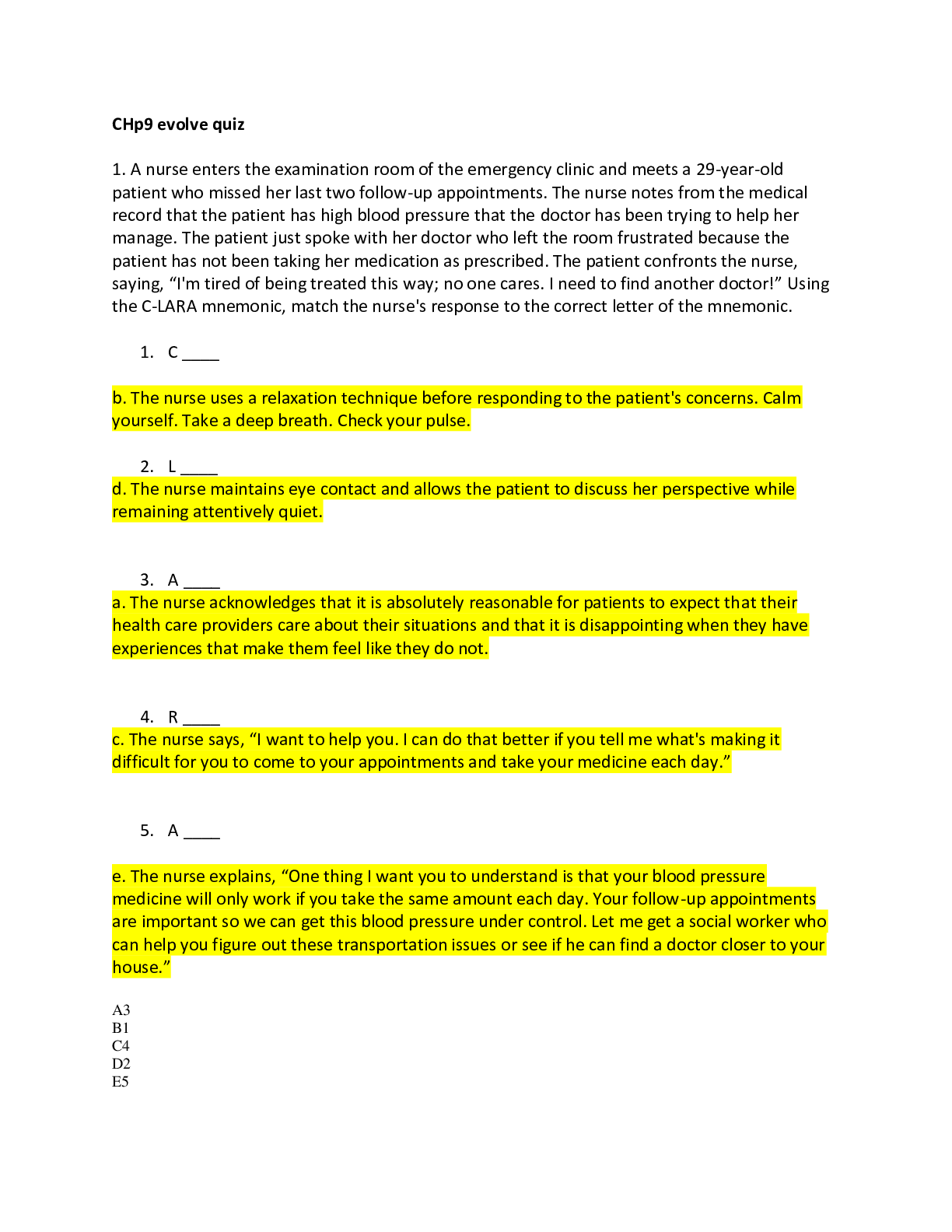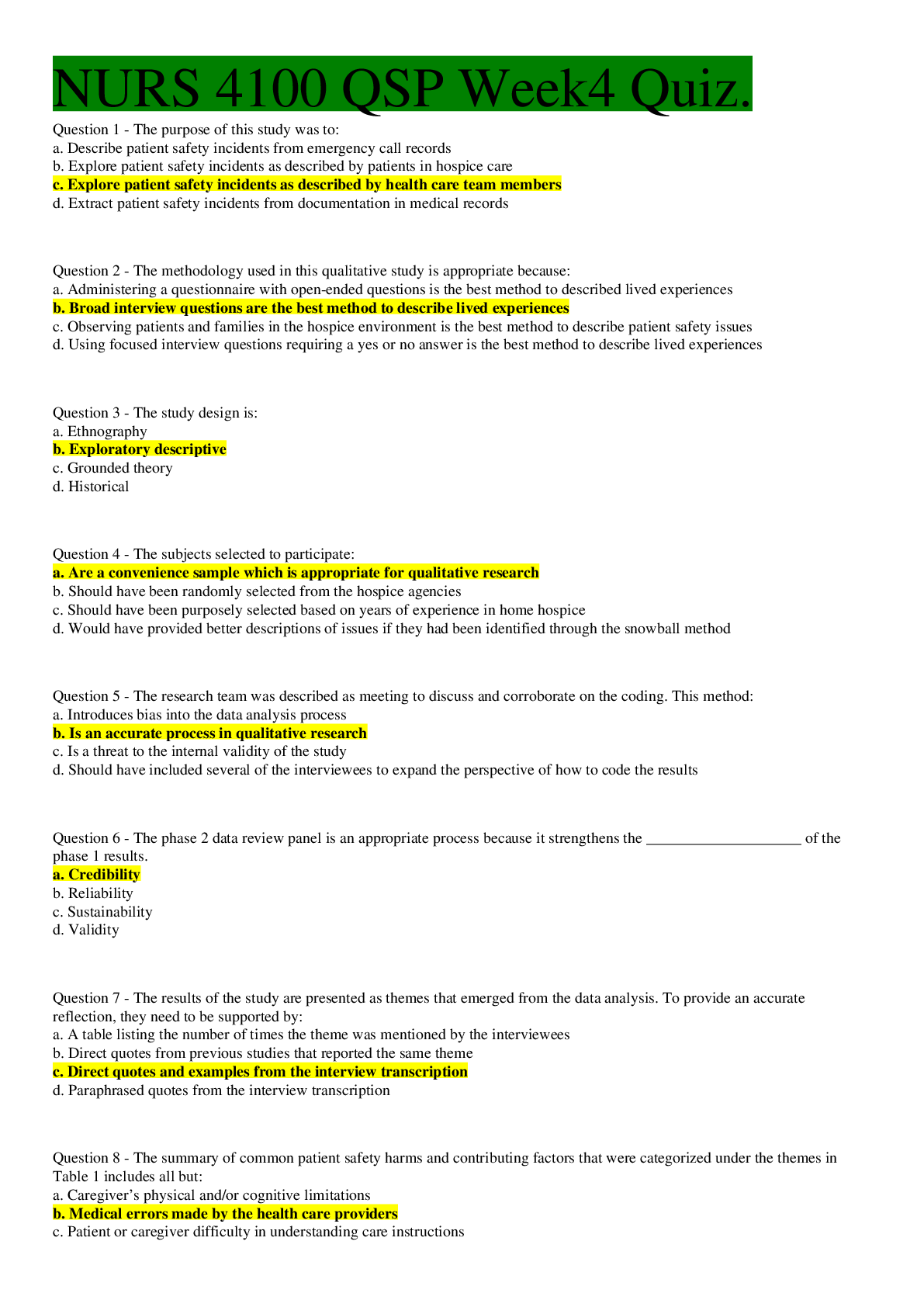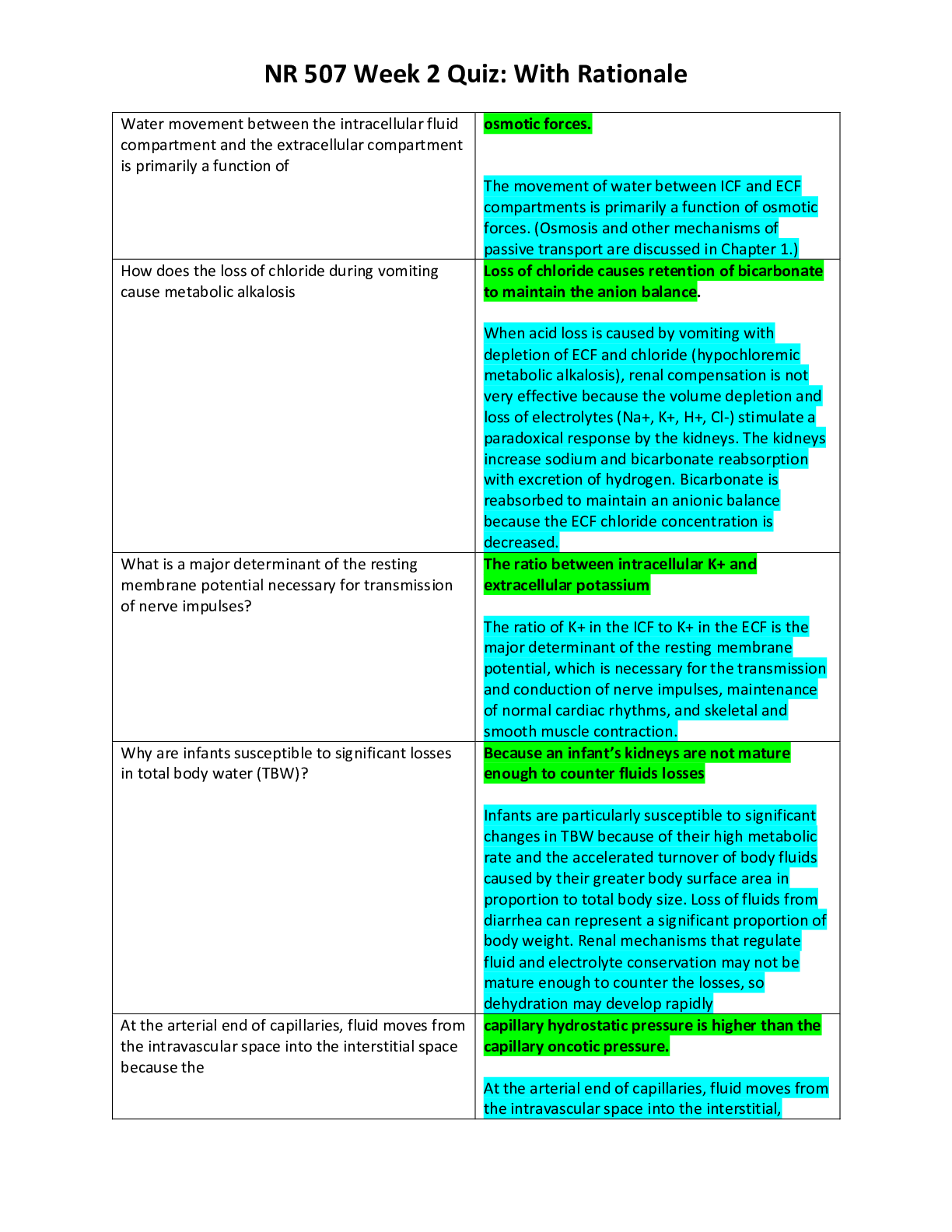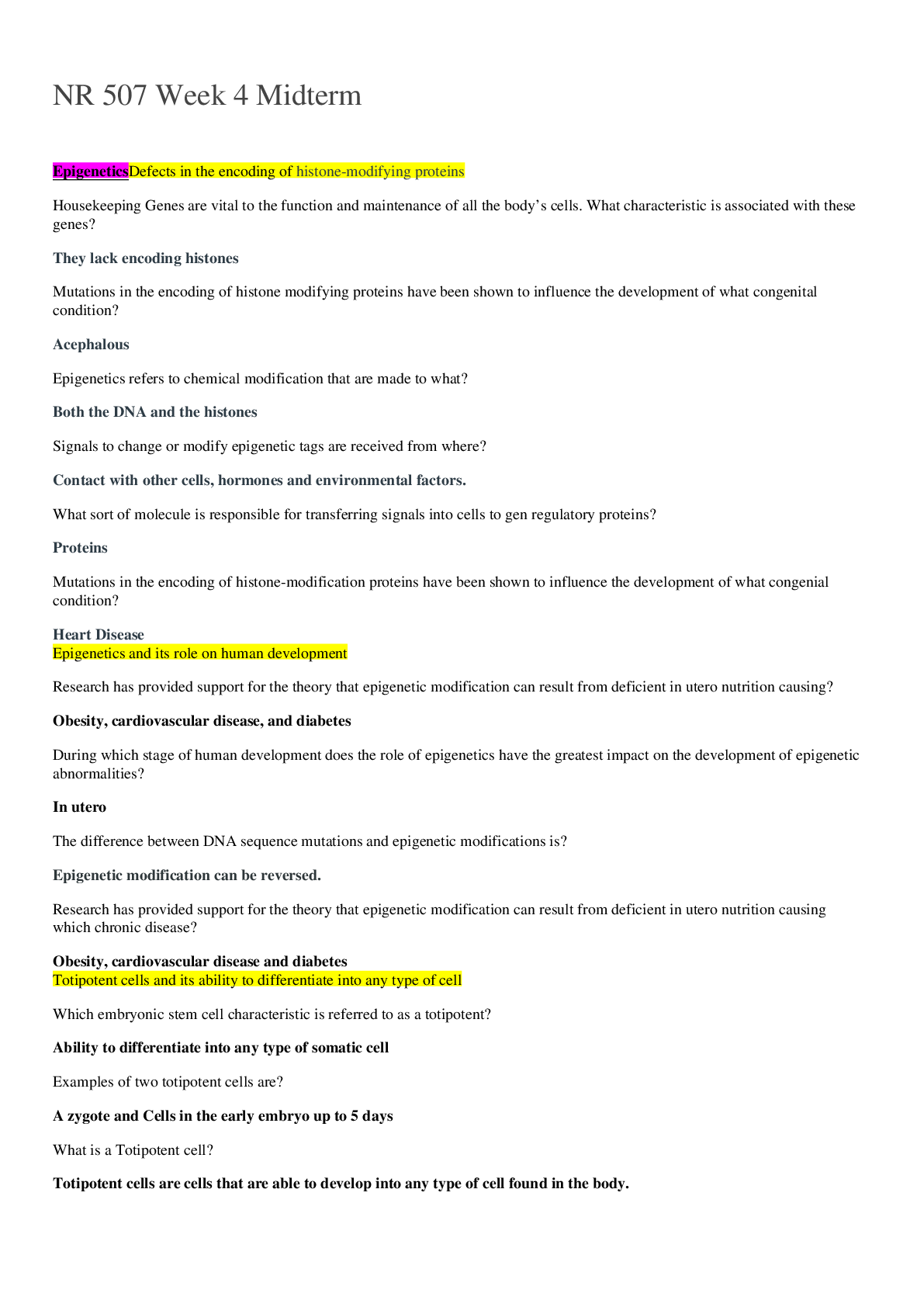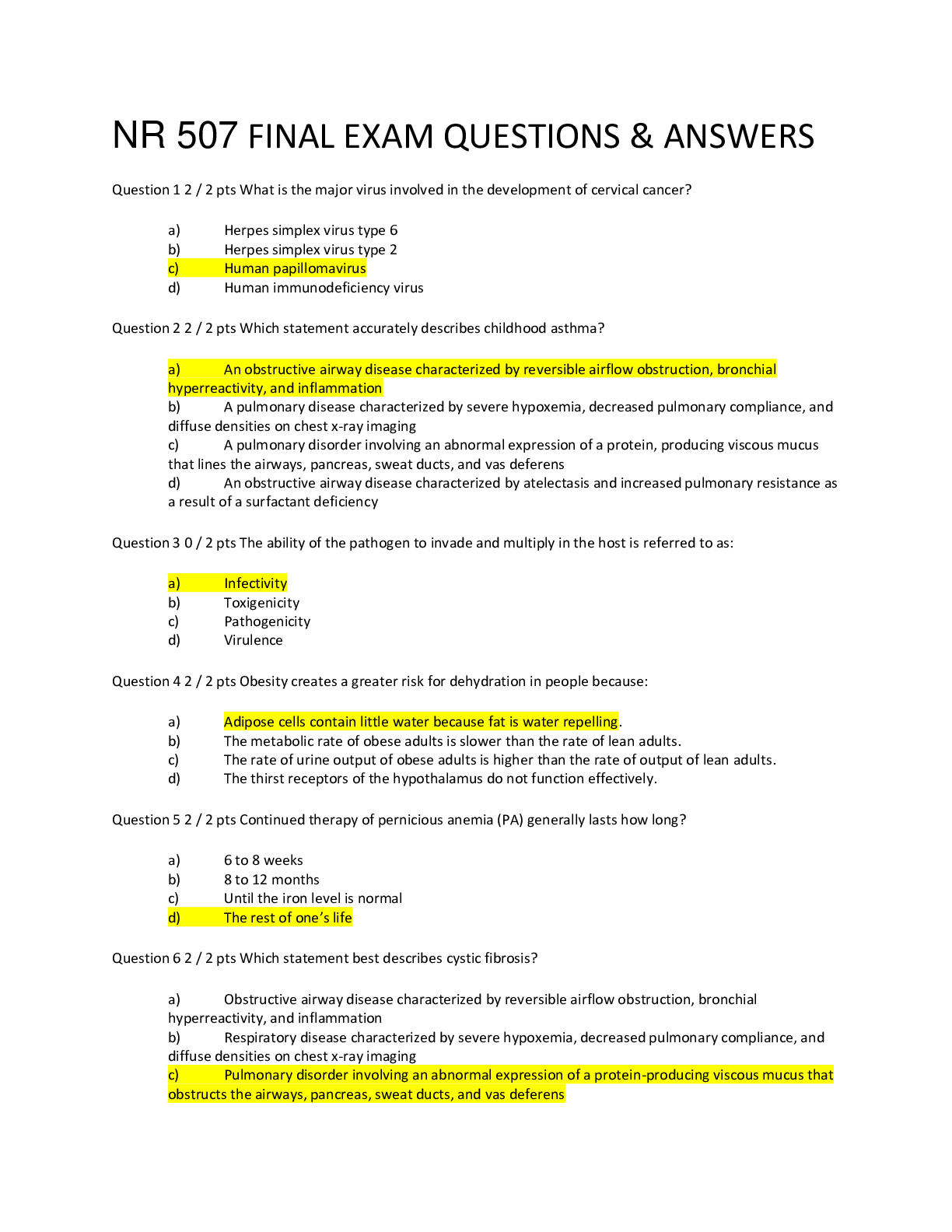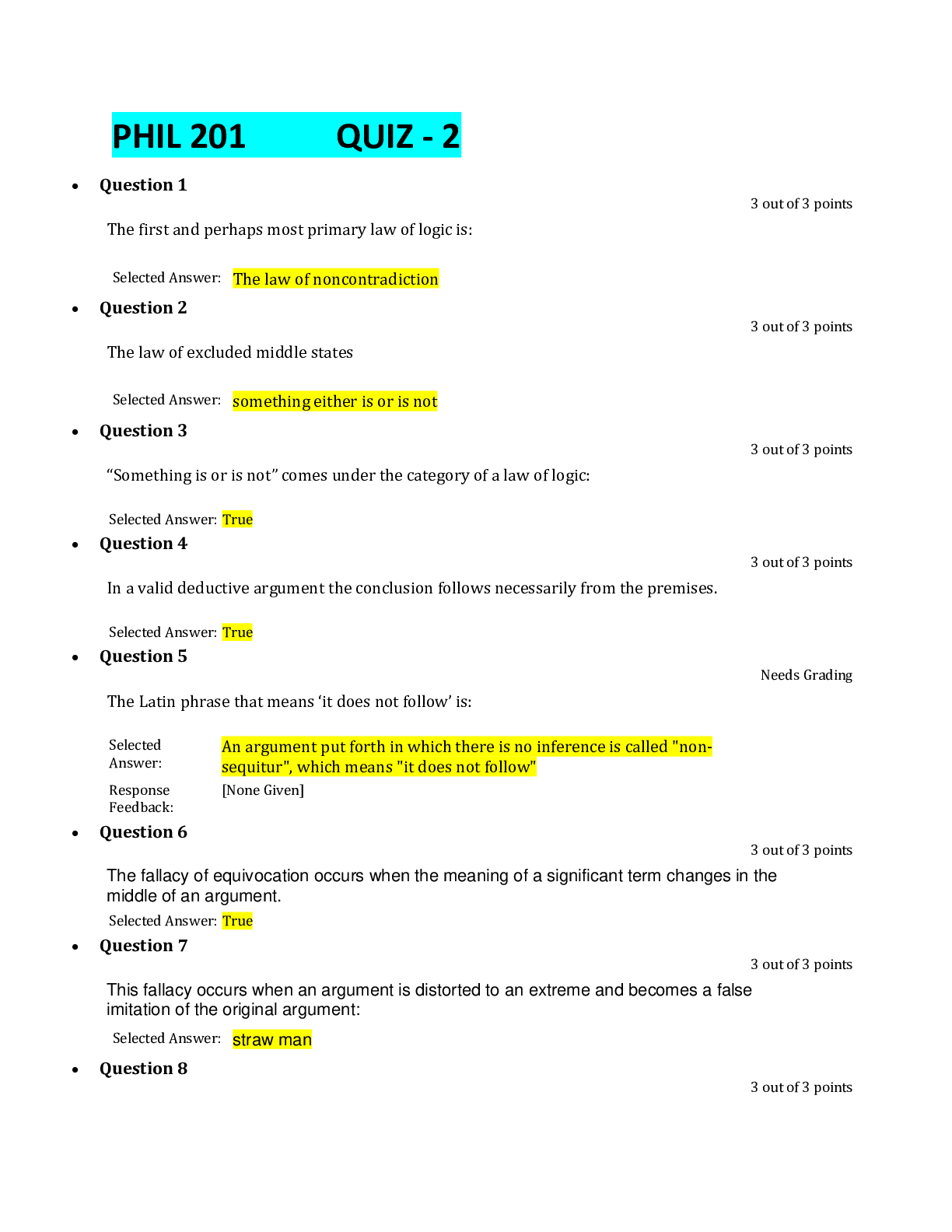Psychology > EXAM > Psychology PSYC 210 Quiz 8 Questions & Answers Graded A. (All)
Psychology PSYC 210 Quiz 8 Questions & Answers Graded A.
Document Content and Description Below
PSYC 210 Quiz 8 with Answers LUO In the Netherlands, euthanasia is legal for individuals suffering from: Greer and his colleagues interviewed women with a recent diagnosis of breast cancer. They were ... able to place all subjects into specific categories based on how they reacted to the diagnosis. These categories included all of the following EXCEPT: After suffering with cancer and cancer treatments for over two years, Martin informed his friends and family that he would not pursue any further treatment, and did not want any more visitors. Martin is likely in the ________ stage of grief described by Kübler-Ross. When Florence’s husband died after a long battle with cancer, she was comforted with the thought that he was no longer in pain. This is an example of: Between the ages of ______ children develop the ability to understand and interact with their world in a more realistic way. Hospice professionals attempt to reduce pain and suffering in the final stage of life. In some cases, voluntary euthanasia (requiring consent of the patient) has moved to involuntary euthanasia (without the consent of the patient) in countries where it is legal. In the Netherlands, adults who are terminally ill may chose euthanasia, but infants, children and adolescents cannot be euthanized. When George learned that his 22-year-old son had suffered life-threatening injuries while serving with the United States Army in Afghanistan, he drove to the army recruiter’s office and began shouting at the officer who had signed his son up. George is likely to be experiencing the ________ stage of grief described by Kübler-Ross. By first or second grade, most children are capable of understanding that death is irreversible. Which of the following is NOT one of the stages in the Kübler-Ross model? Palliative care involves prolonging health and curing illness. In late adulthood, individuals tend to fear _____. When Maximus’ wife of 60 years died, he found comfort in performing simple daily tasks that had previously been his wife’s “duty” in their marriage. This is an example of: Maisy is a 28-year-old female was just diagnosed with breast cancer. When her husband asked about her appointment she replied, “Oh, everything is fine.” Maisy is in the _____ stage of grief described by Kübler-Ross. A legal document intended to provide direction related to end of life care. Treatment involving deliberate action taken with the purpose of ending another person’s life. Christianity teaches that “sanctity of life” takes precedence over a perceived “quality of life.” Support aimed at curing illness and prolonging life. This type of grief is experienced in circumstances where the death of a loved one is not acknowledged by others (such as in cases of abortion, miscarriage or still birth), or when the cause of death carries with it a social stigma (such as execution or suicide). Most religions accept euthanasia as a compassionate alternative to end of life suffering. Grief resulting from a loss that is not acknowledged or validated by others or mourned openly. An individual’s social support network can reduce levels of pain, feelings of depression, and may even improve the survival rate of the terminally ill. Hospice professionals treat the whole person, providing assistance with physical, emotional, and spiritual needs. According to Piaget’s theory, young children may assume that death is: According to Cicirelli, young children may lack an understanding of death because adults: The Kübler-Ross model describes _______ stages individuals experience when terminally ill. It can be argued that passive euthanasia (withholding or refusing medical intervention) is a false distinction because there is no moral or ethical imperative that requires one to seek medical intervention. According to Nader &Salloum (2011), _______ lack(s) the cognitive ability to understand the permanence of death. A document which describes the medical procedures a person prefers for his or her end of life care (is not necessarily a legal document). [Show More]
Last updated: 1 year ago
Preview 1 out of 5 pages
Instant download
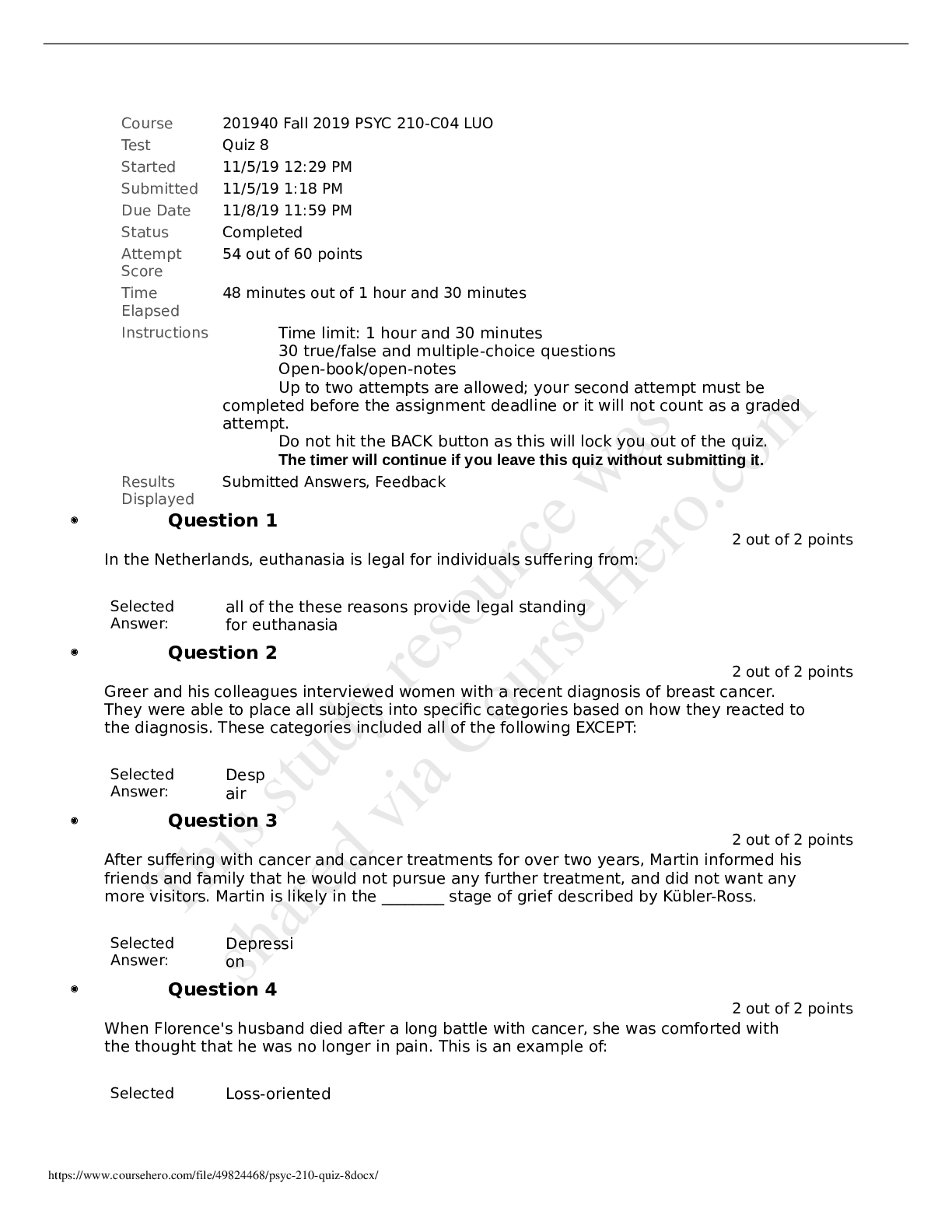
Buy this document to get the full access instantly
Instant Download Access after purchase
Add to cartInstant download
Reviews( 0 )
Document information
Connected school, study & course
About the document
Uploaded On
Mar 12, 2021
Number of pages
5
Written in
Additional information
This document has been written for:
Uploaded
Mar 12, 2021
Downloads
0
Views
44

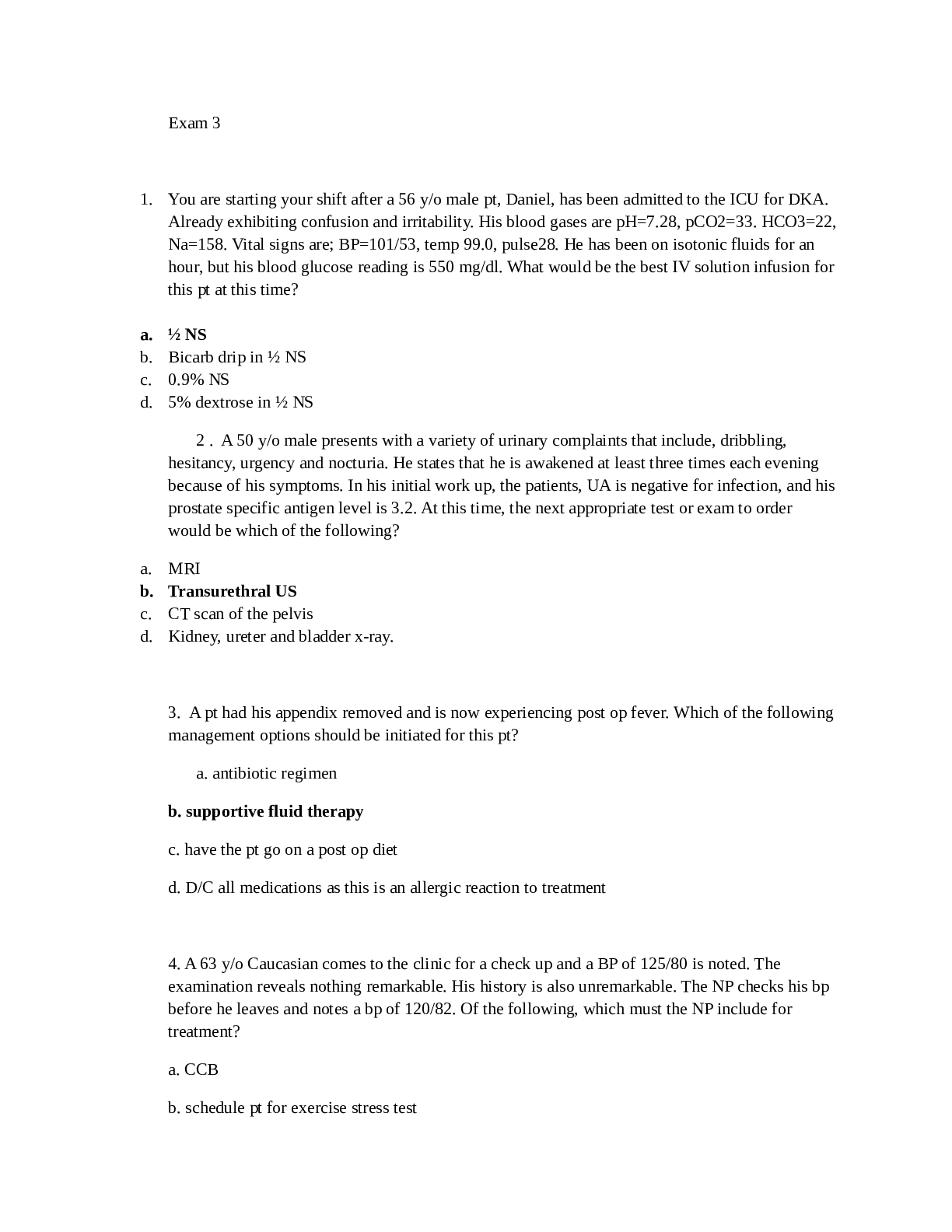

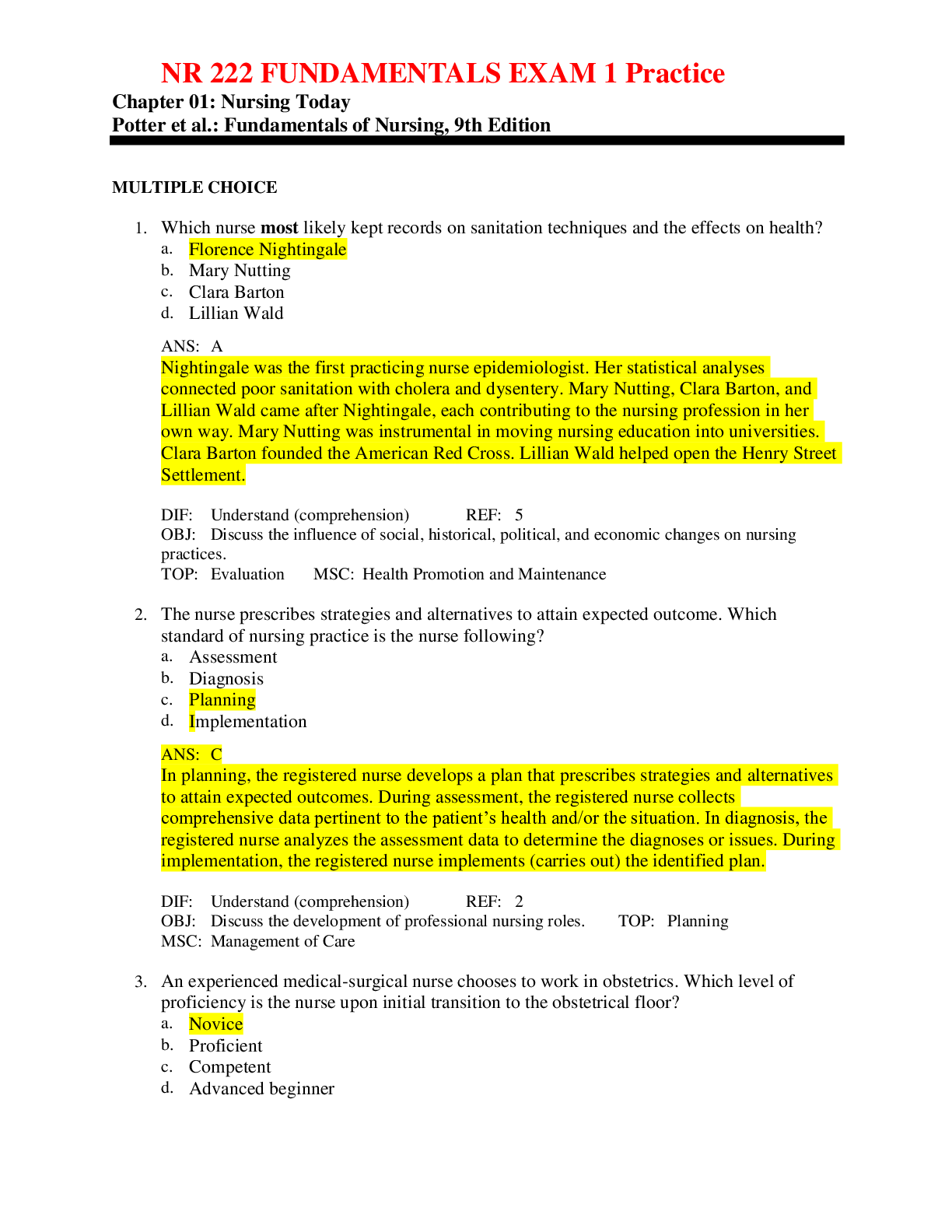

.png)
